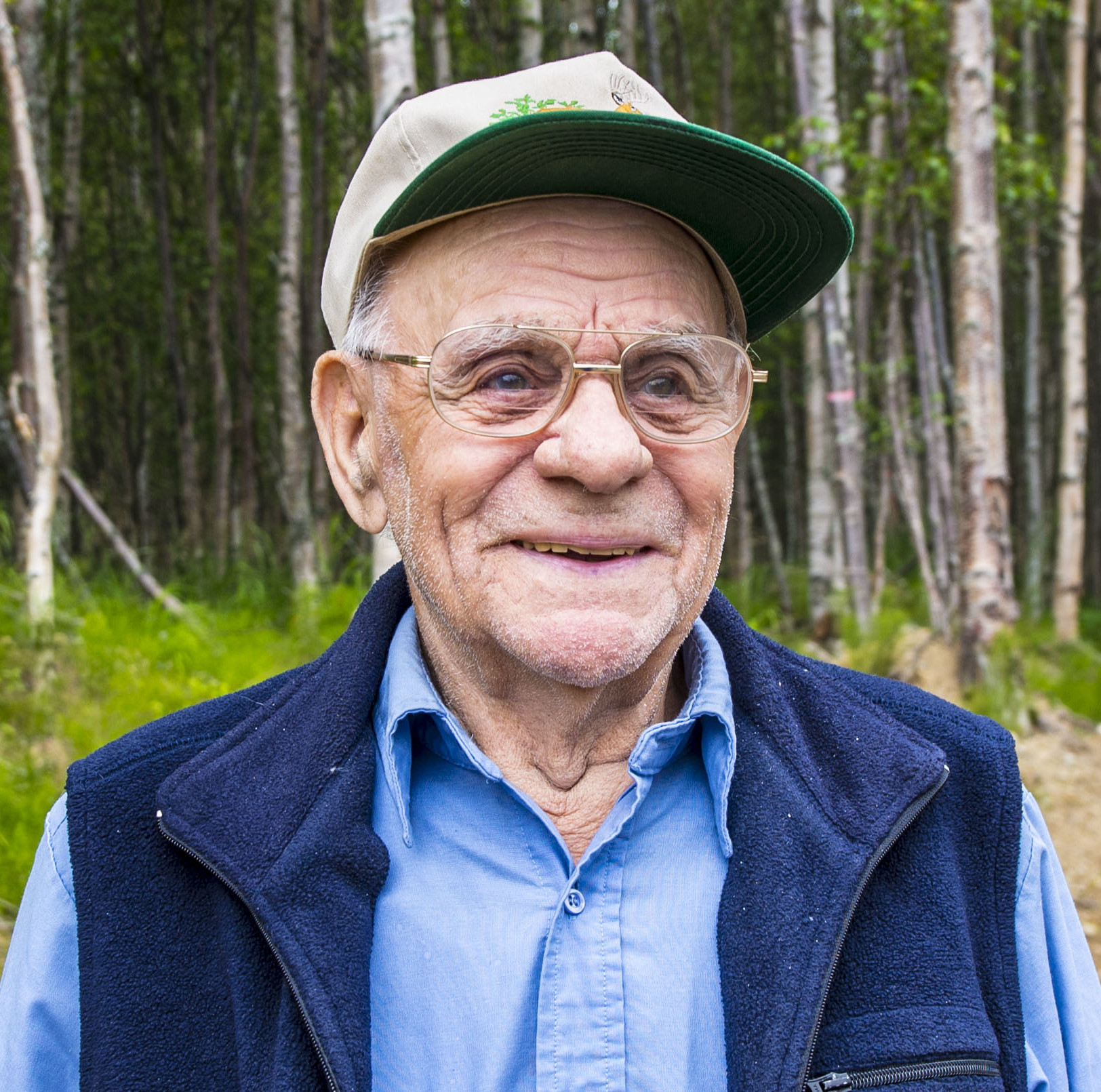
You see a lot over the course of 94 years. Children become adults, cities grow and sprawl. But as CIRI’s oldest original shareholder can tell you, some things stay the same, too.
Work has been one constant in the life of CIRI and Salamatof shareholder Charles Toloff. He started working at the age of 15, helping to fell trees and clear rights of way for new roads in the burgeoning city of Anchorage.
“Anchorage was a small town then, only around 5,000 people,” says Toloff.
Born at Fort Gibbon, near Tanana, where his father was posted in the army, Toloff grew up in Anchorage, the oldest of nine children. He did what he could to help put food on the table. “We didn’t have much. We were some of the poorest people in town,” he says. “We fed the kids off of whatever we could raise in our own yard, and then we’d go down to the river and catch all the fish we would need for the winter, hunt game all year. We lived off the country more or less. I look back, that was good — better than life is nowadays, I think.”
He worked on the railroad as a young man, even herded dairy cattle for a local farmer. At 21, he ventured out of state for the first time and worked on tugboats in San Francisco. “Just a way to make a living, trying things out here and there to see what I wanted to do,” he says.
Tugboats weren’t for him, so he returned to Anchorage where he worked for the teamsters and eventually met his wife, June. They and their three children were living in a house Toloff was building himself when the 1964 Good Friday earthquake struck.
“We didn’t see our oldest daughter, Linda, for a couple of days after the earthquake,” Toloff recalls. Linda had gone to the movies that day; Toloff’s other daughter was at a friend’s, and his son was at home, watching the television set roll back and forth on its casters as the ground shook. Meanwhile, Toloff and his wife dodged falling concrete blocks at a paint store. After the quake, they wound their way around detours to get home again. “The roads were pretty tore up. We had a hard time getting home. Linda finally showed up after a bunch of phone calls, once the phones got fixed up. She couldn’t get home, so she’d gone to a friend’s.”
In 1970, Toloff followed several of his siblings south, to Kenai. Once again, he encountered a do-what-you can situation. “There wasn’t a lot going on down here then, except for work in the oilfield,” says Toloff, who became a longshoreman, loading supplies onto boats headed for the oil platforms.
His willingness to do whatever he had to in order to make ends meet reflects his father’s determination to make it in a new world. Toloff’s father immigrated when his parents scraped together just enough money to send one of their children to the U.S. after the 1917 Russian revolution. The young man eked out a living on the West Coast doing whatever he needed to before joining the U.S. Army at age 18 and coming to Alaska. Toloff’s mother was an Athabascan from the Yukon River area.
Today, Toloff lives in Nikiski. At 94, he’s spry, eager to get out and be active. But his wife’s poor health keeps him at home.
“We have an awful time finding any help down here,” he says. Once a week, a young woman comes to the couple’s home to sit with June while Toloff runs errands. “Otherwise, I’m stuck at the house.”
In other words, still doing what he has to. And a little of what he wants to, from time to time. “I still like to get out and fish and hunt if I can get away,” he says. “I’m raring to go. Ninety-four is pretty old, but I still do stuff.”



